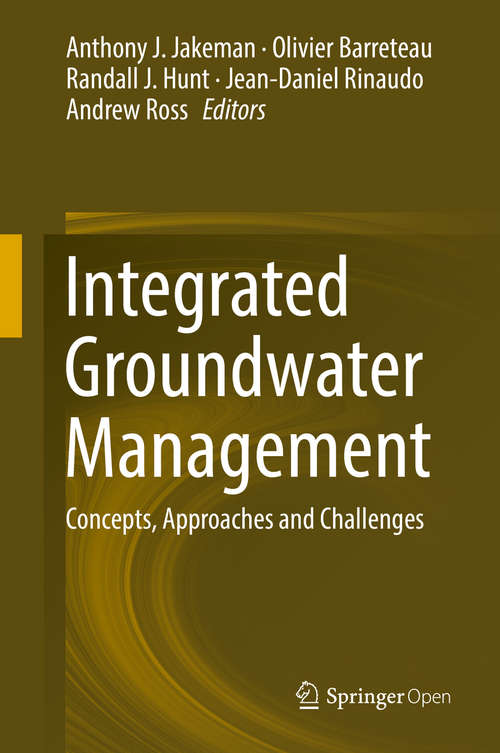Integrated Groundwater Management
By: and and and and
Sign Up Now!
Already a Member? Log In
You must be logged into Bookshare to access this title.
Learn about membership options,
or view our freely available titles.
- Synopsis
- The aim of this book is to document for the first time the dimensions and requirements of good integrated groundwater management. Groundwater management is a formidable challenge and should be one of humanity's foremost priorities. Given past and current rates of over-extraction, groundwater is largely a non-renewable resource in many parts of the world. The issue is how we manage this crucial resource in an acceptable way that considers the sustainability of the resource for future generations and the socioeconomic and environmental impacts. In many cases this means restoring a degree of equilibrium to at-risk aquifers. There are many, often-interrelated dimensions to managing groundwater effectively. It is important to get the science and social science right, to work on, and with, the policy framework, and to ensure the wider community, and stakeholders in areas of concern, support and participate in making the challenging decisions. Generally speaking, pursuing an integrated approach will mean considering the wider context of surface water and catchment management. Each chapter in this book makes a clear distinction between the methods currently practiced for groundwater management and those of IWRM. The book provides an overview of the dimensions and requirements of groundwater management from an international perspective, i. e. what practitioners and researchers need to bear in mind about groundwater management as the preservation of a shared global resource. The book is divided into five sections, each of which addresses concepts, approaches and difficulties in the application of methods for the management of groundwater. Section 1 highlights the scale of groundwater issues internationally: the level of exploitation and the resultant pressure quantitatively and qualitatively. Section 2 discusses groundwater governance issues with regard to strategies, policies and institutions for integrated water management, while Section 3 discusses biophysical aspects including the capacity and role of hydroecological and hydrogeological science and the need for ecological assessments. Section 4 particularly discusses water quality concerns and its management within the broader as well as within the social economic context. Lastly, Section 5 deals with the current state of modeling and decision-making support system and how to deal with data and uncertainty issues.
- Copyright:
- 2016
Book Details
- Book Quality:
- Publisher Quality
- ISBN-13:
- 9783319235769
- Publisher:
- Springer International Publishing, Cham
- Date of Addition:
- 03/21/17
- Copyrighted By:
- Springer
- Adult content:
- No
- Language:
- English
- Has Image Descriptions:
- No
- Categories:
- Nonfiction, Earth Sciences
- Submitted By:
- Bookshare Staff
- Usage Restrictions:
- This is a copyrighted book.
Reviews
Other Books
- by Andrew Ross
- by Jean-Daniel Rinaudo
- by Randall J. Hunt
- by Olivier Barreteau
- by Anthony J. Jakeman
- in Nonfiction
- in Earth Sciences
